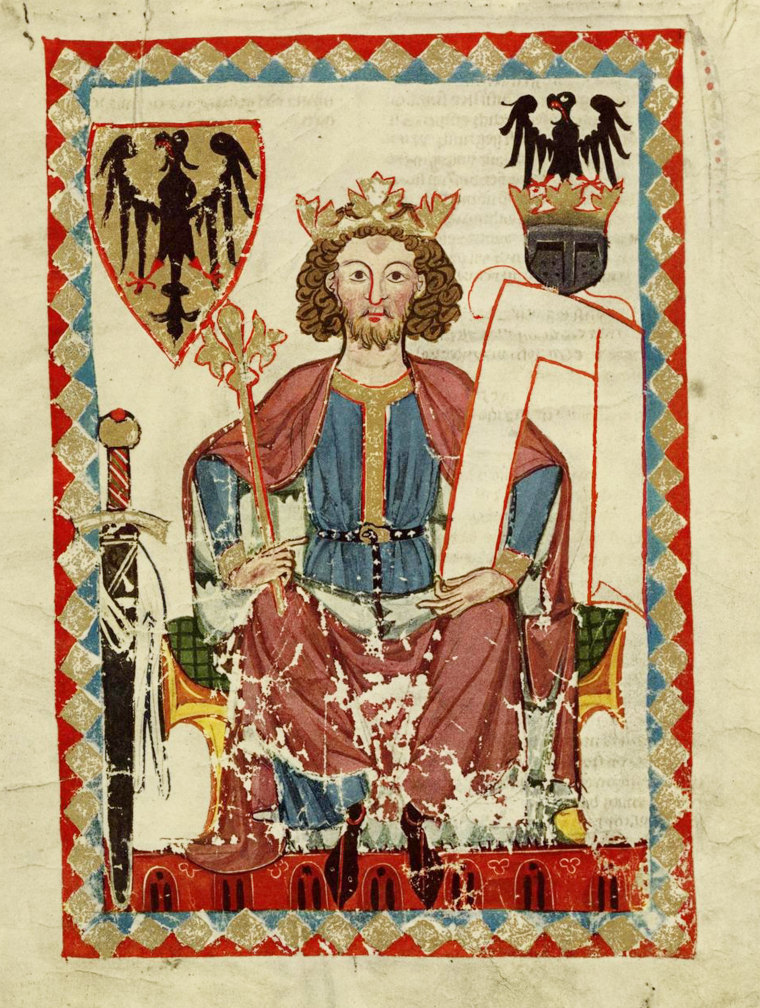It sounds like a rejected script for a James Bond movie. An obscure German aristocrat with a historic royal title plans to overthrow the government in a violent coup, freeing it from the supposed tyranny of the deep state.
But that is, German prosecutors say, exactly what the self-styled Heinrich XIII Prince of Reuss was doing until he was arrested along with 24 alleged far-right co-conspirators Wednesday as part of the largest police counterterrorism operation in German history.
Little is known of the terrorist group that, prosecutors alleged, had access to weapons and training, had recruited from the armed forces and the police and had drawn up detailed plans to install a new government.
The group, part of the Reichsbürger, or Reich Citizens, movement, which rejects the legitimacy of the German state after Kaiser Wilhelm II stood down in 1918, was planning to install Heinrich as the new head of state, authorities say.
Pictures showed him being led away in handcuffs Wednesday by police officers in balaclavas as his and his fellow plotters’ hopes were dashed.
Here is what we know about the man who would’ve been kaiser.

Germany has been a republic for more than 100 years and is now the most powerful democracy in Europe. It has no actual princes or kings, but as with many other former monarchies across Europe, some aristocrats with hereditary royal titles still choose to use them.
Heinrich XIII, 71, belongs to the House of Reuss, an ancient royal lineage that ruled parts of what is now Thuringia in central Germany for hundreds of years until 1918. It is now one of Germany’s 16 federal states.
Reuss is just one of the many branches of German royalty, many of which have familial links across the rest of Europe, some of them to the British royal family.
In a quirk dating to the 12th century, male heirs to the Reuss throne are all called Heinrich, followed by a number. That’s in tribute to Heinrich VI, who reigned as the king of Germany and Holy Roman Emperor until his death in 1197.

Heinrich was arrested at his home in an upmarket district of Frankfurt on Wednesday.
Ostthüringer Zeitung, a local newspaper, reported that police also searched his hunting lodge, a small neo-Gothic castle near the town of Bad Lobenstein in Thuringia, originally built in the 19th century for his ancestor Heinrich LXXII.
NBC News has not verified the reports.
Heinrich may claim the hereditary title, but the House of Reuss is less than pleased with him.
Heinrich XIV, a distant relative who acts as the head of the house and its spokesman, told the German broadcaster MRD on Wednesday that he was shocked by the news and that he hadn’t spoken to Heinrich XIII for a decade.
“Of course it rubs off catastrophically on the family,” he said. “I believe we’ve been a tolerant, cosmopolitan dynasty for 850 years in eastern Thuringia, and now we are all around the world, all the way to America, [we’re] ‘terrorists’ and ‘reactionaries’ — it’s really horrible.”
Heinrich XIII, arrested Wednesday wearing a green blazer, brown trousers, a blue shirt and a colored silk scarf, is described in German media profiles as an entrepreneur. His personal website vaguely says he offers “coordination of business interests.”
He is accused of contacting representatives of the Russian Federation both in Russia and in Germany in the hope of winning support to overthrow the Berlin government, although prosecutors said there was no evidence Moscow officials reacted positively to the request.
The House of Reuss disowned Heinrich XIII even before he was arrested. In August, the house distanced itself from his views, with Heinrich XIV describing him as a “confused old man” who “is now caught up in conspiracy theory misconceptions.”
Those views are now under intense scrutiny.
In short, Heinrich XIII argues that Germany as we know it doesn’t exist.
Should a coup attempt eventually happen — and German authorities say they expect more arrests in the coming days — it wouldn’t be the first attempt to force a return to Germany’s imperial past.
The Kapp Putsch, or coup, in 1920 tried but failed to overthrow the government in Berlin, which its supporters saw as illegitimate. More than 100 years on, that feeling is very much alive among some right-wing conspiracists in Germany.
Delivering a rambling speech titled “Why blue-blooded elite became servants” at the World Web Forum in Zurich in 2019, Heinrich presented a rose-tinted picture of monarchical Germany at the end of World War I.
“If something wasn’t going well, you just went to the prince,” he said. “Who are you supposed to turn to today? Your parliamentarian, the local, federal or E.U. level? Good luck!”
He argued that his family was unjustly deposed and cited an antisemitic conspiracy theory about the role of Jewish bankers in the removal of European kingdoms.
Summing up the Reichsbürger credo, he said: “Ever since Germany surrendered on May 8, 1945, it has never been sovereign again. It was made into an administrative structure of the Allies … a vassal state.”
With some historical symmetry, Heinrich was arrested almost 100 years after the Beer Hall Putsch, a failed coup by Hitler’s Nazi Party in Munich on Nov. 8-9, 1923.
Hitler failed and was sentenced to five years in prison. He served nine months but this was a period in which he wrote his manifesto-cum-memoir “Mein Kampf.” The incident helped bring the Nazis to wider public attention and laid the groundwork for what was to come.
CORRECTION (Dec. 9, 2022, 02:53 a.m. ET): A previous version of this article misstated the length of time Adolf Hitler spent in prison for his role in the Beer Hall Putsch. He was sentenced to five years but served nine months.
